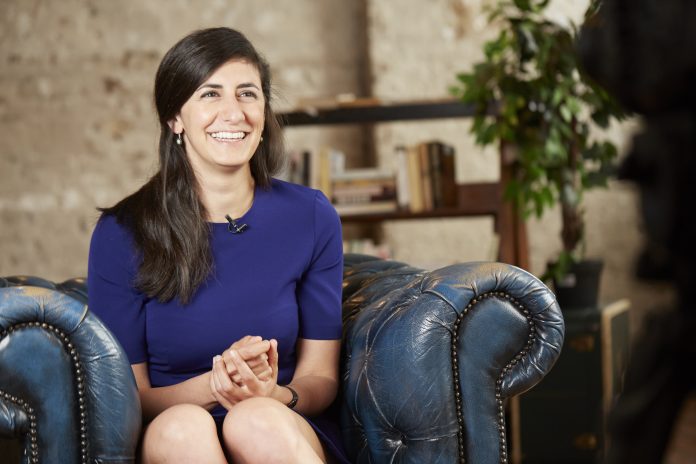I didn’t know what I wanted to do when I was at school. I liked languages, arts, sciences and maths but didn’t fully understand what different careers meant.
I applied to do medicine because my parents are doctors and I understood that job but didn’t get a place at university.
Why not chem eng?
During that time, I got a leaflet from the ‘Why Not Chem Eng’ campaign. The leaflet said chemical engineers work in lots of different industries like food, pharmaceuticals, water and energy. The variety appealed to me, so I went for it.
The highlight of my time at university was studying abroad in Malaysia for one year, this was an amazing place to live. Also, during university, I did a summer placement at a power station and loved it, that was how I got into the energy sector.
Working in energy
I then did a graduate scheme with E.ON, worked in a coal-fired power station, spent six months in Istanbul doing some business development work, then worked in oil and gas.
I was getting more interested in sustainability, clean energy, and climate change, so I decided to change jobs and do something more aligned with that. That was when I joined the government.
Climate change
I now work on funding clean energy innovations, it’s really fun and it feels great to be contributing to the solutions for climate change. Throughout that time, I was building up evidence to submit my application for engineering chartership which I achieved back in 2016.
We know that human activity, like burning fossil fuels, is contributing to climate change. A significant proportion of the emissions that contribute to climate change come from our energy use. That’s things like coal and gas-fired for generating electricity, petrol that we power our cars with, and natural gas that we burn in boilers at home for heating.
I want to make a positive difference in the world and contributing to the solutions for climate change seems like a great way of doing that to me! As an engineer, I can make a practical, tangible impact.
What a chemical engineer does
Chemical engineers turn raw materials into useful products. There is a huge range of jobs we can have.
I have been writing a series of articles for the Chemical Engineer Magazine about different chemical engineers, and I have found some super interesting people.
I spoke to someone who is a fragrance buyer for Lush, someone who is developing technology to recycle textiles to combat the fast-fashion problems, and someone who used to deal with the engineering side of filming Hollywood blockbusters like Harry Potter! All these people started out with a degree in chemical engineering like me.
Once you’ve worked as a chemical engineer for a few years and achieve a certain level of seniority, you can apply to become chartered, which means you have been vetted by your peers as someone with enough knowledge and experience to hold positions of responsibility.
My advice
If you’re passionate about solving problems, becoming a chemical engineer is a great way to channel that enthusiasm. You can get involved in all sorts of interesting things, for example how to scale up the production of drugs, this is really relevant right now as we search for a coronavirus vaccine. Once it’s ready, we will need to produce millions of doses, that’s where chemical engineers come in to help with the production.
If you want to get into chemical engineering or the energy sector, I’d recommend spending some time looking at resources like Tomorrow’s Engineers and This is Engineering on YouTube. You can also look into university courses or apprenticeships, and try to find work experience opportunities.
Obstacles and achievements
There are constant challenges in life, but I think that’s normal and I try to look at the positives. For example not getting into university to study medicine seemed like a huge setback at the time, but it meant that I became a chemical engineer, which is a much better result!
My work can be quite tough at times, but I ask for help from my colleagues and work through problems with others which makes it much easier. Likewise, I try to be there to help out when my colleagues when they need it.
It feels amazing to be included on the Women in Engineering Society’s top 50 women in engineering list. It also feels surreal to be named alongside some very impressive and experienced leaders in sustainability. I hope that I can inspire other women to take up engineering and work in the clean energy sector.
Advice I’d give my younger self
I thought I had one shot at picking the one job that I want to do for the rest of my life. I would tell myself not to worry too much about choosing the exact job, once you get into the working world you will see how many different options there are and you will move around and get different experiences.
I would also say there is a big myth that you have to do sciences or arts, and there is no overlap between them. That is not true at all. Creative people make fantastic engineers, I have been able to build up my creative skills in a science writing and presenting career alongside my engineering jobs.
